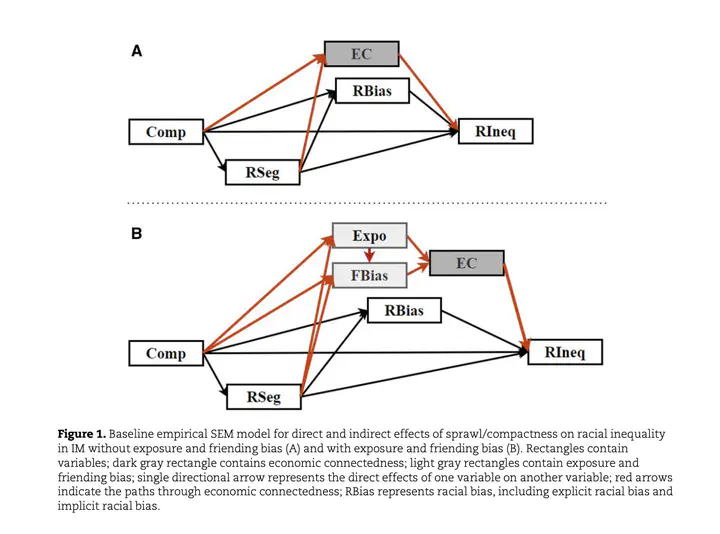
Abstract
Abstract Persistent racial inequality in socioeconomic status within urban areas has been a significant concern in both the US and European countries. Differences across racial groups in intergenerational mobility (IM) have been identified as a key source of this persistence. However, efforts to understand racial inequality in IM have rarely considered the role of urban sprawl. This article argues that urban sprawl affects differences in IM between racial groups directly and indirectly through racial segregation, racial bias, and social capital. We analyze data from 874 metropolitan counties in the US using structural equation models to test these direct and indirect effects of sprawl on racial inequality in IM. We found that urban sprawl was negatively associated with racial inequality in IM. The direct effect, which we partially attribute to higher racial disparities in social capital in more compact counties, was statistically significant. For the indirect effects, racial segregation had the largest mediating effects between urban sprawl and racial inequality in IM, followed by economic connectedness (EC) and racial bias. The net indirect effect of sprawl on racial inequality in IM was negative because negative indirect effects through racial segregation and EC outweigh positive indirect effects through racial bias. Our findings demonstrate the significant role of urban form in racial inequality in IM.